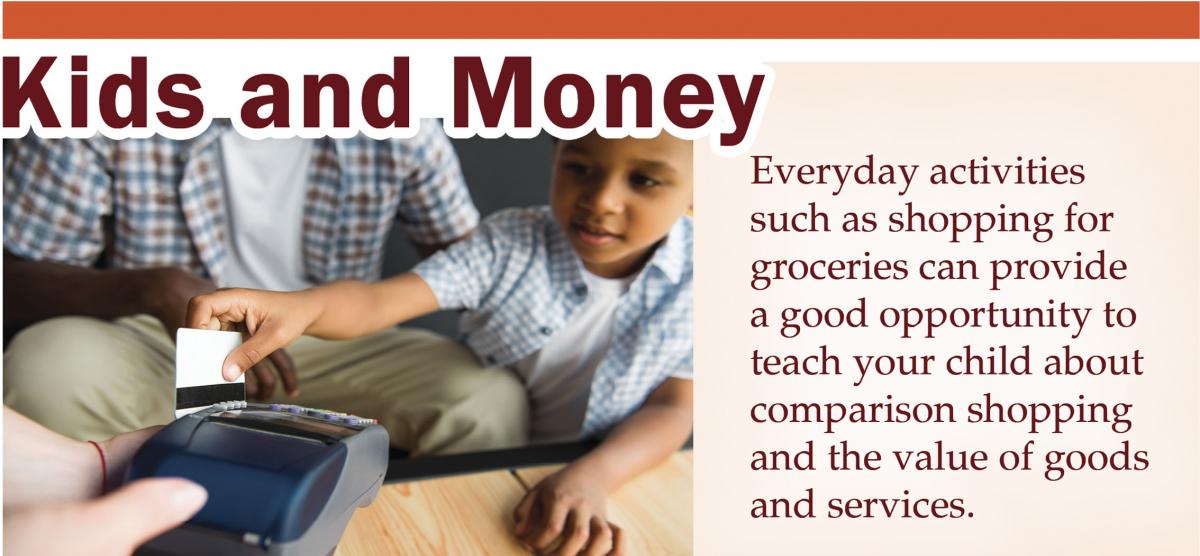We Pass on Many Things to Children
By teaching our children personal finance skills, we can pass on the money management lessons we’ve learned along the way. This financial education fact sheet will give you a brief overview of some of the skills and knowledge best taught to children based on their age.
Share Your Knowledge Early and Often
Talking with your children about personal money matters can’t wait until you have your finances in perfect order. Even the best money managers have room for improvement. Our income, bills, and other financial obligations can change frequently, making it necessary to update our money management approaches. While you may not feel comfortable explaining in-depth to your teenager why you were once overdrawn on your checking account, you can begin to teach your teen how to balance a checkbook. Share what you have learned.
National surveys and consumer trends point to the difficulties adults have in sticking to a budget, saving for the future, and managing personal debt. By starting a dialogue with children about these subjects, we can better prepare them for the more in-depth, hands-on experiences they will have with money as they grow older. The need is great.
One 2017 survey found that just 22 percent of Vermont adults reported having received financial education in home, at school, or at the workplace. So roll up your sleeves and take a deep breath! Your kids are watching you and you can be a valuable guide to them on how to negotiate through our increasingly complex financial world.
Need Resources? We're Here to Help
MyMoney.Vermont.Gov is organized to provide helpful information about teaching kids about money. Check out these resources:

